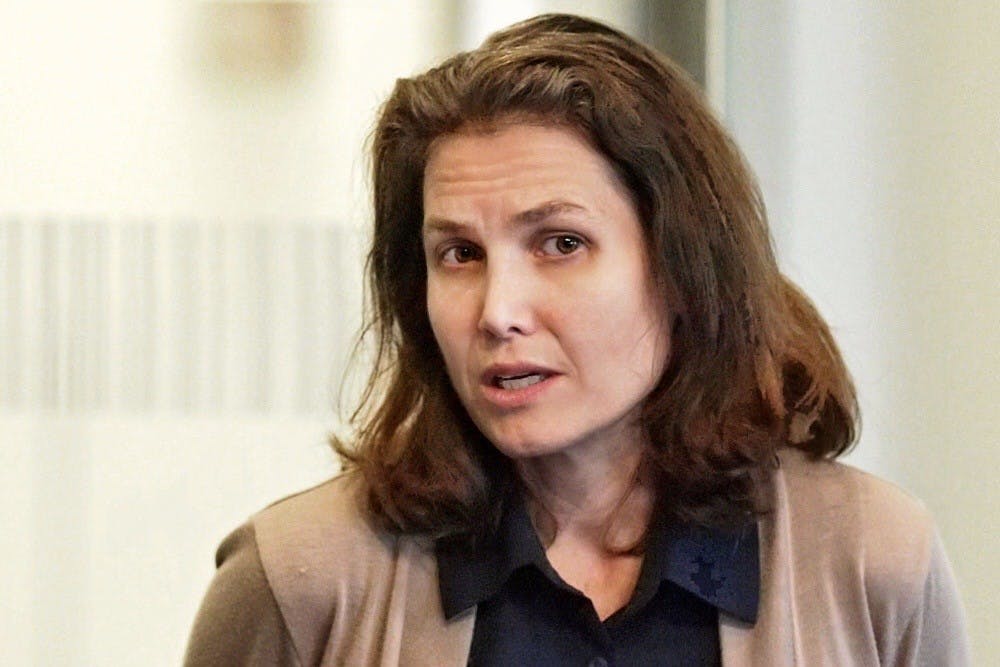
Dr. Jennifer Prah Ruger is the founder and director of Penn's Health Equity and Policy Lab.
As the founder and director of Penn's Health Equity and Policy Lab, Dr. Jennifer Prah Ruger's commitment to providing pertinent research for policymakers is accompanied by an equal dedication to mentoring students.
Prah Ruger, a professor of Health Equity, Economics, and Policy at the School of Social Policy & Practice and the Perelman School of Medicine, founded HEPL in an endeavor to use social statistics for social change. The lab works with over 65 collaborators around the world — with institutions from the Bill and Melinda Gates Foundation in the United States to the Madras School of Economics in India — to create research to shape policy with an effort to improve health equity, efficiency, resource allocation, and governance.
“We look at health inequity as a shortfall or a gap of people who are not achieving the highest level of health in the world. What's possible in some parts of the world should be possible everywhere. Our approach is focused on reducing that gap,” Prah Ruger said.
HEPL's research is composed of six specific health topics: equity, capability, efficiency, resource allocation, financing, and governance. On the HEPL website, each topic has extensive research regarding U.S. and global health and policy information.
Prah Ruger said the non-partisan lab has found that health equity outcomes tend to correlate with where people live geographically, what kinds of facilities people have access to or don't have access to, and an individual's race, ethnicity, gender, and sexual orientation.
In addition to conducting research, one of Prah Ruger's main goals is to teach the students in the lab and instill in them the core values of integrity, support, and purpose.
2020 College graduate Kara Zhang, who worked with Prah Ruger at HEPL from June 2019 to May 2020, said Prah Ruger's pedagogical approach drew her to working at the lab.
“It definitely caught my attention from day one. That value-based approach to teaching and mentorship where it's very clear that this is someone who's very committed to your personal development, your academic development, and your professional development,” Zhang said.
Zhang said she knew she wanted to join the lab after taking Prah Ruger's BENF 227 Global Health and Justice seminar. She said she felt that "everyone had a place at the table" in the class, which inspired her to continue learning at HEPL.
BENF 227 is part of the Ben Franklin Scholars program, which includes students in all four undergraduate schools, and the course focuses on theoretical approaches to addressing ethical inequities in access, quality, financial burdens, and resource priorities in healthcare fields.
2020 Nursing graduate Skylar Stowell also took BENF 227 and said the course helped her to think critically about health policy issues she had observed in the world and to search for their creative solutions.
Meghna Sreenivas, a 2020 Wharton graduate, was enrolled in BENF 227 in the spring 2020 semester and said Prah Ruger brought forward the most pertinent issues related to the COVID-19 pandemic to the class.
Prah Ruger said her course at Penn and her lab both work to create equitable solutions in health policy.
“We provide the studies that are the basis for change. Nobody should be marginalized. Nobody should be treated unequally. People should be respected in their flourishing and their capabilities,” Prah Ruger said.
The Daily Pennsylvanian is an independent, student-run newspaper. Please consider making a donation to support the coverage that shapes the University. Your generosity ensures a future of strong journalism at Penn.
Donate







